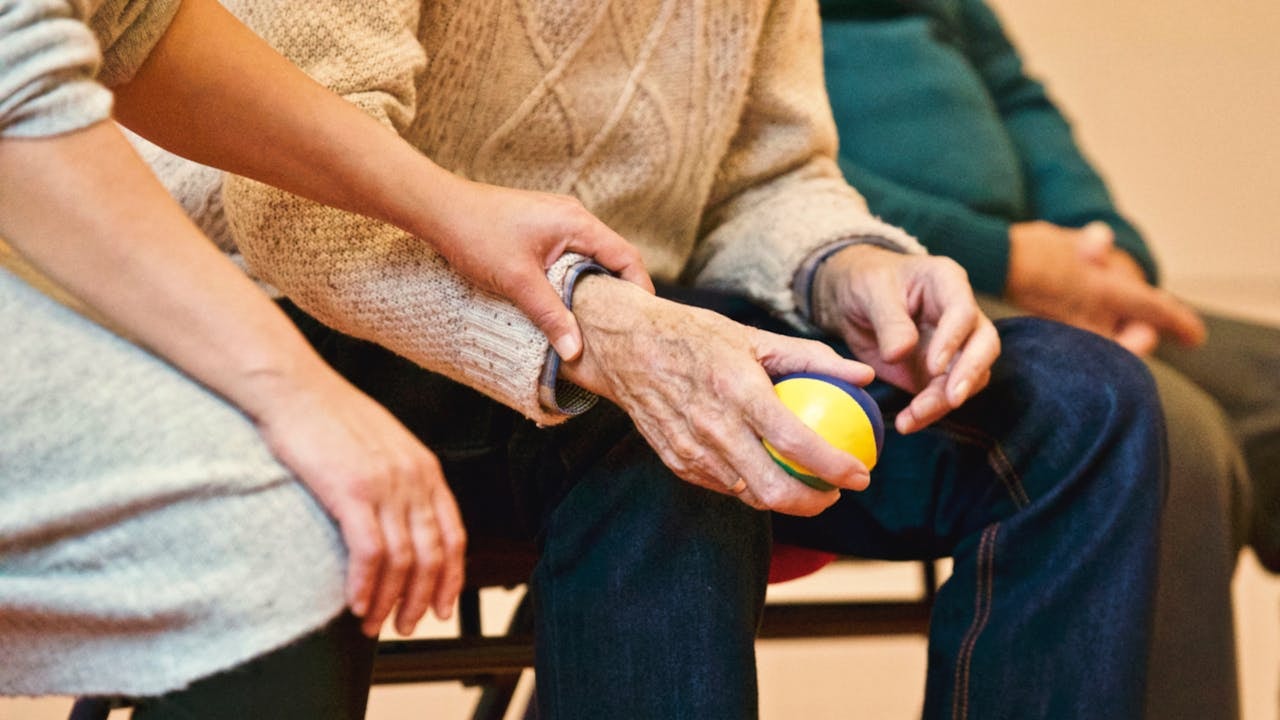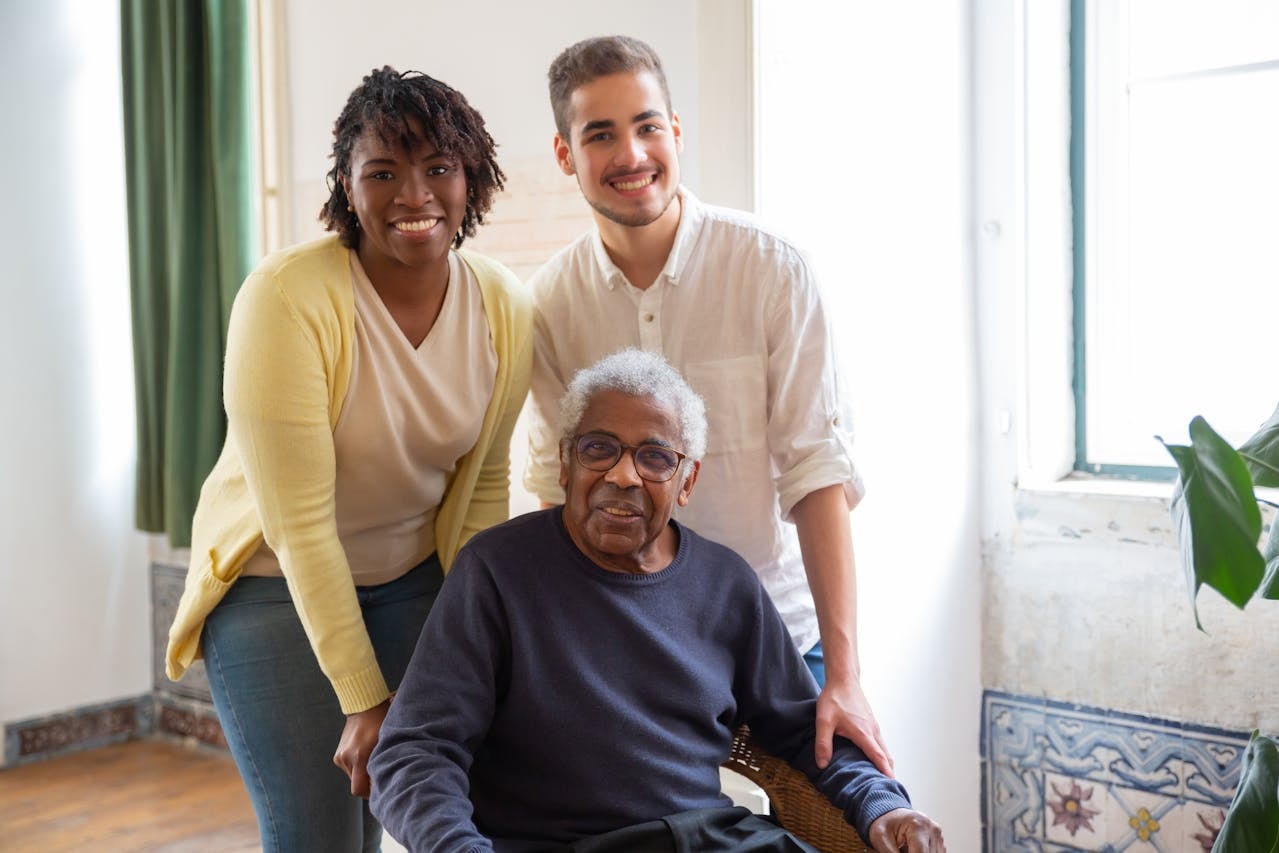
For group home Australia, there are things you need to know. When it comes to supporting individuals with unique needs, choosing the right environment is crucial. Group homes Australia are increasingly recognised as a gold standard for care, offering a nurturing, community-driven alternative to traditional care facilities.
If you’re wondering whether a group home is the right choice for your loved one, let’s explore this transformative model of care—what it entails, why it stands out, and how it can be a game-changer for your family.
What Are Group Homes?

Group homes are small-scale, residential care facilities designed to provide a home environment for individuals needing support. Unlike large institutions, group homes typically house 6-10 residents on site, focusing on personalised care and fostering a sense of independence.
At their core, group homes are about creating a space for person that feels like home. They cater to individuals with a range of needs, including disabilities, dementia, or those requiring palliative care. These homes integrate daily activities into a resident’s routine, enabling them to develop skills, maintain independence, and engage in meaningful social interactions.
Key Characteristics of Group Homes:
Tailored Care: Each resident’s care plan is personalised to their individual needs, preferences, and life stories. This means everything from meals to medical support is designed with the resident in mind.
Supportive Staff: The wellness team, including support workers, is trained to provide compassionate assistance with personal care, health needs, and emotional well-being. Their role goes beyond caregiving—they aim to build connections that enrich a person’s life.
Intimate Settings: With only 6-10 residents, group homes foster close-knit communities where relationships with staff and fellow residents thrive. This intimate environment ensures everyone’s voice is heard and respected.
Focus on Independence: Group homes encourage residents to participate in daily activities, from preparing meals to engaging in hobbies, helping them cherish life’s moments and maintain their sense of purpose.
Integration with Local Communities: Many group homes organise outings and activities that connect residents with their local community. Whether it’s a trip to a park in St Ives or attending social events in the Northern Beaches, these experiences enhance their quality of life.
What Group Homes Are Not:
Group homes differ significantly from traditional aged care facilities. They are not hospital-like environments but rather traditional homes adapted for dementia, to provide care in a way that respects each individual’s dignity and autonomy.
Unlike larger care facilities, group homes focus on creating small, supportive communities that truly feel like family.
Group Homes vs. Aged Care Facilities: What’s the Difference?

While both options provide essential services, they cater to different needs. Understanding the distinctions can help families make informed decisions.
Group Homes:
- Focused on a holistic, person-centred approach that considers the person’s life story, preferences, and unique needs.
- Designed for individuals who thrive in smaller, intimate environments integrated with the community.
- Promote independence by encouraging residents to participate in daily activities such as meal preparation, gardening, or social events.
- Typically cater to a mix of needs, from dementia care to disabilities, within a home-like setting that accommodates 6-10 residents.
Aged Care Facilities:
- Larger, institutional settings often designed to manage high volumes of residents.
- Specialise in providing medical care and palliative care for elderly individuals with complex health requirements.
- Structured routines may feel less flexible compared to the personalised nature of group homes.
- Emphasis on hospital-style accommodation and services, with facilities designed to handle advanced healthcare needs.
Key Differences at a Glance:
Scale: Group homes are small and personal, while aged care facilities often accommodate dozens or even hundreds of residents.
Environment: Group homes aim to replicate a traditional home environment, whereas aged care facilities are more clinical in design.
Care Approach: Group homes focus on personalised care, fostering independence and emotional well-being, while aged care facilities prioritise intensive medical support.
Community Integration: Residents in group homes engage with local communities and enjoy a range of social activities. In contrast, aged care facilities may have fewer opportunities for external engagement.
Which Is Right for You?
The decision between a group home and an aged care facility depends on several factors, including:
- Level of Care Required: For individuals needing high medical care or hospital-level assistance, aged care facilities may be more suitable. Those seeking a supportive, community-oriented setting may find group homes ideal.
- Personal Preferences: Some individuals prefer the intimate, home-like feel of a group home, while others may value the structured and comprehensive care of aged care facilities.
- Family Involvement: Group homes often allow greater involvement from family members, fostering stronger connections and shared experiences.
- Cost Considerations: Group homes tend to offer competitive pricing for their services, making them a cost-effective option for families.
By weighing these factors, families can choose the setting that best aligns with their own time and loved one’s needs and values. Both options have unique benefits and strengths, but the personal touch of group homes often makes them a preferred choice for those seeking a balance of care and dependent community.
The Benefits of Group Homes Australia

Group homes Australia are gaining popularity for their numerous advantages. Here’s why families across Australia are making the switch:
1. Enhanced Quality of Life
The smaller size and community-driven housing approach create a warm, supportive environment where residents feel valued and empowered. Homes feel more like friends than home, fostering a sense of belonging.
2. Personalised Care
Support workers in group homes Australia often have the time and resources to build meaningful relationships with residents, ensuring that individual needs and disabilities are met with tailored care. However, the role of a support worker can also present challenges, such as providing inadequate support during illness and lacking ownership in decision-making processes.
3. Community Connection
From local outings to shared meals, group homes Australia encourage residents to engage with one person, another person’s life story, and local communities, reducing feelings of isolation.
4. Cost-Effectiveness
Many group homes offer both housing and food at competitive pricing while providing exceptional care, making them an attractive housing option for families on a budget.
What Makes Group Homes Australian Unique?
Australia’s group homes stand out for their commitment to innovation, inclusivity, and quality care.
Key Highlights:
- Diverse Services: Options for permanent care, flexible respite, and specialised programs.
- Dementia-Friendly Design: Many homes incorporate sensory gardens, secure spaces, and other features to support residents with cognitive challenges and dementia.
- Accreditation and Audits: Australian group homes adhere to stringent quality standards, ensuring consistent and reliable care.
Spotlight on Group Homes Australia

Doing Dementia Differently
Group Homes Australia is redefining the way dementia care is provided by offering residents a new lease on life in environments that prioritise dignity, comfort, and individuality.
Their focus on “doing dementia care differently” is a hallmark of their approach, setting them apart as leaders in aged care innovation.
Specialised Services Tailored to Individual Needs:
Group Homes Australia provides an array of services designed to meet a wide range of care and accommodation needs:
- Permanent Care: For residents requiring long-term support, Group Homes Australia creates a home-like setting where they can thrive. Individual care plans ensure each resident’s medical, emotional, and social needs are met with precision and compassion.
- Flexible Respite Care: For families who need temporary assistance, respite care options allow loved ones to experience the warmth and care of these homes while providing family members with peace of mind and a much-needed break.
- Specialist Dementia Programs: These programs incorporate innovative therapies, including music therapy, memory exercises, and tailored activities that engage residents and improve their quality of life.
Expansive Network Across Prime Locations:
Group Homes Australia has strategically positioned its residences in some of Sydney’s most sought-after areas, such as:
- North Shore: Combining the tranquillity of lush surroundings with easy access to urban amenities.
- Northern Beaches: A serene coastal environment that enhances mental well-being.
- Sutherland Shire: Close-knit community vibes that resonate with the ethos of group home living.
Focus on Family Involvement:
A unique feature of Group Homes Australia is their open-door policy, encouraging family members to participate in their loved one’s care journey. Whether it’s joining a communal meal, attending a social activity, or simply spending quality time, families remain an integral part of residents’ lives.
Testimonials: Voices That Matter
The impact of Group Homes Australia is best expressed by the families who have experienced their residential care here:
- “Knowing my mother is in a space where her individuality is cherished and her health needs are attentively met has lifted a huge weight off my shoulders. Group Homes Australia is more than a care provider; they’re a family.” – Sarah, North Shore.
- “From the moment we stepped into the Sutherland Shire residence, we knew this was the right choice. The staff’s warmth and the home’s atmosphere gave us instant reassurance.” – Michael, Sydney.
Making the Right Choice: Factors to Consider

Choosing a group home site can feel overwhelming, but focusing on key factors like home, can simplify the site and process:
1. Location
Proximity to family members, friends, local communities, and essential services can greatly impact a resident’s experience. For example, homes in areas like St Ives or Northern Beaches offer both convenience and serenity.
2. Staff Expertise
Ensure the carers and support coordinators are qualified and experienced in managing specific conditions such as dementia or disabilities such as dementia or disabilities.
3. Facilities and Amenities
Look for room features that match your loved one’s needs, such as private rooms, outdoor spaces, or specialised equipment for personal care.
4. Cost and Funding Options
Explore government subsidies for health, and funding programs to make care more affordable.
Government Support and Regulations

In Australia, group homes for dementia care are regulated under the Aged Care Quality and Safety Commission, ensuring they meet national care standards. Recent updates to regulations and funding models have made group homes more accessible and reliable for families.
New Regulations:
- Stronger Quality Standards: Updated regulations now mandate a higher level of accountability for group homes, ensuring staff qualifications, facility safety, and resident care meet rigorous benchmarks.
- Compliance Monitoring: Increased frequency of audits and inspections helps maintain high standards across all registered group homes.
- Dementia Care Enhancements: Regulations now require specialised training for support workers to better serve residents with cognitive challenges like dementia, ensuring a tailored approach to their care.
Government Funding Support:
- Home Care Packages: The Australian Government offers financial assistance through Home Care Packages, allowing families to cover the costs of group home care based on individual needs and income.
- National Disability Insurance Scheme (NDIS): NDIS funding supports individuals with disabilities, making it easier for them to access personalised group home care that fits their unique circumstances.
- Subsidies for Respite Care: Flexible respite care subsidies allow families to afford short-term stays in group homes, offering temporary relief for primary caregivers.
- Technology Grants: New funding initiatives encourage the integration of technology in group homes, such as smart home systems and telehealth tools, to enhance care and safety.
What Does Group Home Australia Means for Families:
These advancements make group homes not only a viable but also an increasingly attractive option for families seeking quality care. The combination of stringent regulations and expanded funding options ensures that group homes remain a dependable and enriching environment for residents.
How Group Home Australia Enrich Lives

Group homes do more than provide a place to live—they transform lives by creating environments that support growth, connection, and fulfilment.
1. Building Skills and Independence
Residents in group homes are encouraged to engage in daily activities that promote independence. From cooking their own meals to participating in gardening, these tasks not only develop practical skills but also build confidence and a sense of accomplishment.
2. Fostering Deep Connections
Group homes thrive on the relationships they cultivate. Residents, support workers, and families create a tight-knit community where everyone feels valued. Whether it’s sharing meals, celebrating milestones, or simply enjoying each other’s company, these connections are the heart of group home life.
3. Promoting Mental and Emotional Well-Being
With smaller resident numbers, small group homes offer more personalised attention to each individual’s emotional needs. Activities like art therapy, music sessions, and social outings are often organised to stimulate creativity, reduce stress, and enhance joy.
4. Tailored Nutrition and Health Support
Meals in group homes are often customised to meet residents’ dietary requirements while ensuring variety and quality of food. The focus on balanced nutrition, for example, coupled with regular health check-ups, promotes overall well-being and longevity.
5. Enriching Social Lives
Group homes encourage participation in local events, community projects, and shared hobbies, enabling residents to remain socially active. These interactions combat loneliness and create opportunities to forge new friendships.
6. Cherishing Life’s Moments
By creating a home-like setting, group homes ensure residents can cherish life’s small yet significant moments. Whether it’s enjoying a quiet evening in the garden or a festive celebration with friends and family, these experiences contribute to a richer, more meaningful life.
The Future of Group Homes in Australia

As the demand for personalised care grows, a small group of homes are poised to play a larger role in Australia’s aged care landscape. With continued innovation and community support, these homes will remain a beacon of hope for families seeking quality care.
Technological Advancements: Shaping the Future
Technology is set to revolutionise group homes in Australia, making them safer, more efficient, and even more personalised:
- Smart Home Integration: Advanced monitoring systems, such as motion detectors and wearable devices, allow carers to ensure the safety and well-being of residents while respecting their privacy.
- Telehealth Services: Residents can access medical professionals remotely for consultations, reducing the need for frequent hospital visits and ensuring timely care.
- AI-Driven Personalisation: Artificial intelligence tools can analyse data to offer tailored recommendations for residents’ activities, diets, and medication schedules.
- Enhanced Communication Tools: Video calling and interactive apps keep residents connected with family members, fostering relationships even when loved ones are far away.
- Virtual Reality (VR) Therapy: VR therapy tools are being used to provide immersive experiences that stimulate cognitive function, reduce stress, and improve overall mental well-being.
By embracing these technologies, group homes in Australia can offer an unprecedented level of care, ensuring residents thrive in a nurturing and innovative at home environment.
How Re.Connect Support Services Can Help
At Re.Connect Support Services, we’re passionate about helping families find the perfect care solution. Our team of experts will guide you through the process, connecting you with trusted group homes tailored to your needs.
Why Choose Re.Connect?
- Extensive knowledge of group home options across Australia.
- Personalised recommendations based on your unique circumstances.
- Ongoing support to ensure your loved one’s happiness and well-being.
Final Thoughts
Finding the right care setting is a deeply personal decision. By choosing a group home, you’re opting for a supportive, enriching environment that prioritises individual needs. Whether it’s dementia care, residential care, or flexible respite options, group homes in Australia provide a promising future for loved ones in need.
At Re.Connect Support Services, we’re here to make the journey easier. Contact us today to learn how we can help you find the perfect group home in Australia.


